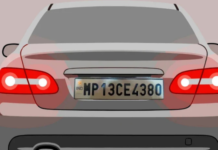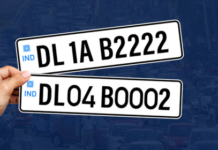When a vehicle is involved in an accident, the damage it sustains can significantly affect its market value, even after it has been professionally repaired. This depreciation in value is known as “diminished value,” and for vehicle owners, understanding how to assess and recover this loss is essential. A diminished value appraisal can help quantify the reduction in a car’s worth, providing vital information for insurance claims or private resale. In this guide, we will explore the concept of diminished value, its different types, and the importance of appraisals for vehicle owners.
What is Diminished Value?
Diminished value refers to the reduction in a vehicle’s market value after it has been repaired following an accident. Even when repairs are made with precision, a vehicle’s history of damage can make it less attractive to potential buyers. The fear of hidden defects or compromised safety features often leads to a lower resale price.
There are three primary types of diminished value:
- Immediate Diminished Value: This occurs immediately after an accident, before any repairs have been made. It reflects the loss in value solely due to the vehicle being damaged.
- Inherent Diminished Value: After repairs are completed, inherent diminished value accounts for the depreciation that remains because the vehicle now has an accident history.
- Repair-Related Diminished Value: This is a reduction in value caused by substandard or incomplete repairs, such as mismatched paint or the use of non-original parts.
Importance of Diminished Value Appraisals
A diminished value appraisal is a professional evaluation that determines how much a vehicle’s value has been reduced following an accident. This appraisal is essential for several reasons:
1. Insurance Claims
In most cases, insurance companies only cover the cost of repairs, leaving vehicle owners to bear the burden of diminished value. However, many policies allow for diminished value claims, and an appraisal can serve as crucial evidence. A thorough diminished value appraisal provides an objective assessment that can be used to negotiate with insurers and secure adequate compensation.
2. Protecting Your Investment
Vehicles are significant financial investments, and any loss in value can represent a substantial hit to your overall finances. Obtaining an accurate diminished value appraisal ensures that vehicle owners are aware of their car’s current worth, even after repairs. This knowledge can help you make informed decisions about selling, trading, or continuing to use the vehicle.
3. Enhancing Negotiation Power
When selling a vehicle that has been involved in an accident, a diminished value appraisal can be an essential negotiation tool. Potential buyers may try to leverage the accident history to demand a lower price. Having a professional appraisal on hand can help the seller justify the vehicle’s post-repair market value, ensuring a fair transaction.
How is Diminished Value Calculated?
The calculation of diminished value typically involves several factors. While methods can vary, professional appraisers generally consider the following:
- Extent of Damage: The severity of the damage and the areas affected play a key role in determining diminished value. For example, damage to a vehicle’s structural components may result in a higher loss of value than damage to cosmetic parts.
- Quality of Repairs: High-quality repairs performed by certified professionals may reduce the amount of diminished value, while poor repairs could exacerbate it.
- Vehicle Age and Condition: Newer cars typically experience a greater loss in value compared to older vehicles with similar damage. The overall condition of the vehicle, such as mileage and maintenance history, is also taken into account.
- Market Perception: Appraisers will also factor in how the vehicle’s accident history impacts its desirability on the open market. For instance, luxury vehicles may experience a greater reduction in value due to higher buyer expectations regarding safety and performance.
Hiring a Professional Appraiser
Given the complexities of calculating diminished value, it’s crucial to hire a qualified appraiser. A professional who specializes in diminished value appraisals will have the expertise to evaluate the damage, consider market factors, and present an accurate valuation. When selecting an appraiser, consider the following:
- Experience: Look for an appraiser with extensive experience in evaluating post-accident vehicles.
- Certifications: Check if the appraiser is certified by recognized organizations, such as the International Society of Appraisers or similar institutions.
- Reputation: Research the appraiser’s reputation through online reviews or word-of-mouth recommendations.
Filing a Diminished Value Claim
If your vehicle has suffered diminished value after an accident, filing a claim with your insurance company is the next step. The process typically involves:
- Gathering Documentation: Ensure that you have all the necessary paperwork, including repair invoices, accident reports, and the diminished value appraisal.
- Submitting a Claim: Submit your claim to your insurer, along with the appraisal. Be prepared to negotiate, as insurance companies often dispute or minimize diminished value claims.
- Negotiation: If the insurance company offers an inadequate settlement, use your appraisal and any supporting documents to challenge the offer. In some cases, it may be necessary to involve a legal professional or an independent arbitrator.
Conclusion
For vehicle owners, understanding the impact of diminished value is essential to protecting your investment. Whether dealing with an insurance claim or preparing for a sale, a diminished value appraisal can provide you with an accurate assessment of your vehicle’s post-accident worth. By hiring a professional appraiser and using the appraisal effectively, you can ensure that you receive fair compensation and maintain your vehicle’s value in the marketplace.






